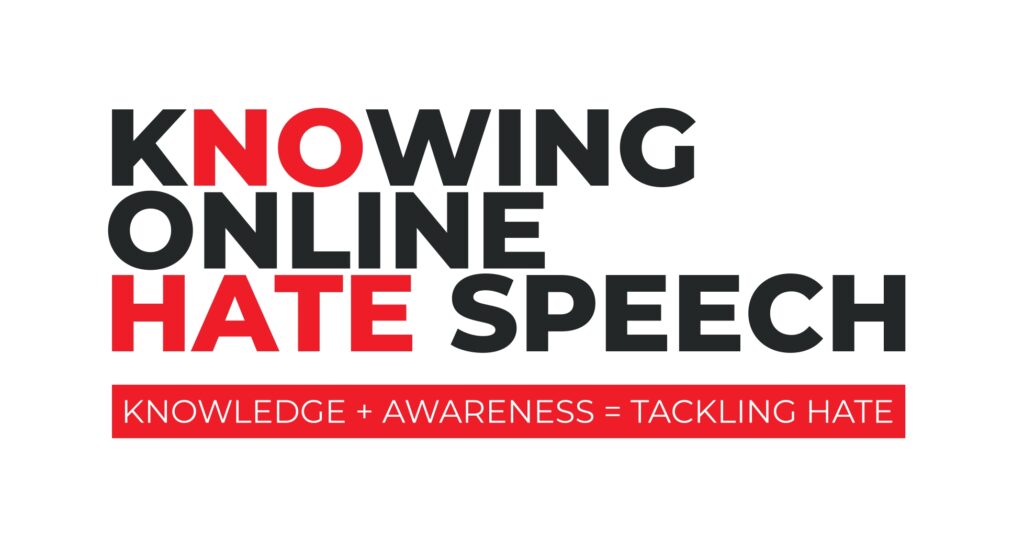
This is the model card for HateBERTimbau. You may be interested in some of the other models from the kNOwHATE project.
HateBERTimbau
HateBERTimbau is a foundation, large language model for European Portuguese from Portugal for Hate Speech content.
It is an encoder of the BERT family, based on the neural architecture Transformer and developed over the BERTimbau model, retrained on a dataset of 229,103 tweets specifically focused on potential hate speech.
Model Description
- Developed by: kNOwHATE: kNOwing online HATE speech: knowledge + awareness = TacklingHate
- Funded by: European Union
- Model type: Transformer-based model retrained for Hate Speech in Portuguese social media text
- Language: Portuguese
- Retrained from model: neuralmind/bert-large-portuguese-cased
Several models were developed by fine-tuning Base HateBERTimbau for Hate Speech detection present in the table bellow:
| HateBERTimbau's Family of Models |
|---|
| HateBERTimbau YouTube |
| HateBERTimbau Twitter |
| HateBERTimbau YouTube+Twitter |
Uses
You can use this model directly with a pipeline for masked language modeling:
from transformers import pipeline
unmasker = pipeline('fill-mask', model='knowhate/HateBERTimbau')
unmasker("Os [MASK] são todos uns animais, deviam voltar para a sua terra.")
[{'score': 0.6771652698516846,
'token': 12714,
'token_str': 'africanos',
'sequence': 'Os africanos são todos uns animais, deviam voltar para a sua terra.'},
{'score': 0.08679857850074768,
'token': 15389,
'token_str': 'homossexuais',
'sequence': 'Os homossexuais são todos uns animais, deviam voltar para a sua terra.'},
{'score': 0.03806231543421745,
'token': 4966,
'token_str': 'portugueses',
'sequence': 'Os portugueses são todos uns animais, deviam voltar para a sua terra.'},
{'score': 0.035253893584012985,
'token': 16773,
'token_str': 'Portugueses',
'sequence': 'Os Portugueses são todos uns animais, deviam voltar para a sua terra.'},
{'score': 0.023521048948168755,
'token': 8618,
'token_str': 'brancos',
'sequence': 'Os brancos são todos uns animais, deviam voltar para a sua terra.'}]
Or this model can be used by fine-tuning it for a specific task/dataset:
from transformers import AutoTokenizer, AutoModelForSequenceClassification, TrainingArguments, Trainer
from datasets import load_dataset
tokenizer = AutoTokenizer.from_pretrained("knowhate/HateBERTimbau")
model = AutoModelForSequenceClassification.from_pretrained("knowhate/HateBERTimbau")
dataset = load_dataset("knowhate/youtube-train")
def tokenize_function(examples):
return tokenizer(examples["sentence1"], examples["sentence2"], padding="max_length", truncation=True)
tokenized_datasets = dataset.map(tokenize_function, batched=True)
training_args = TrainingArguments(output_dir="hatebertimbau", evaluation_strategy="epoch")
trainer = Trainer(
model=model,
args=training_args,
train_dataset=tokenized_datasets["train"],
eval_dataset=tokenized_datasets["validation"],
)
trainer.train()
Training
Data
229,103 tweets associated with offensive content were used to retrain the base model.
Training Hyperparameters
- Batch Size: 4 samples
- Epochs: 100
- Learning Rate: 5e-5 with Adam optimizer
- Maximum Sequence Length: 512 sentence pieces
Testing
Data
We used two different datasets for testing, one for YouTube comments here and another for Tweets here.
Hate Speech Classification Results (with no fine-tuning)
| Dataset | Precision | Recall | F1-score |
|---|---|---|---|
| YouTube | 0.928 | 0.108 | 0.193 |
| 0.686 | 0.211 | 0.323 |
BibTeX Citation
@inproceedings{DBLP:conf/slate/MatosS00B22,
author = {Bernardo Cunha Matos and
Raquel Bento Santos and
Paula Carvalho and
Ricardo Ribeiro and
Fernando Batista},
editor = {Jo{\~{a}}o Cordeiro and
Maria Jo{\~{a}}o Pereira and
Nuno F. Rodrigues and
Sebasti{\~{a}}o Pais},
title = {Comparing Different Approaches for Detecting Hate Speech in Online
Portuguese Comments},
booktitle = {11th Symposium on Languages, Applications and Technologies, {SLATE}
2022, July 14-15, 2022, Universidade da Beira Interior, Covilh{\~{a}},
Portugal},
series = {OASIcs},
volume = {104},
pages = {10:1--10:12},
publisher = {Schloss Dagstuhl - Leibniz-Zentrum f{\"{u}}r Informatik},
year = {2022},
url = {https://doi.org/10.4230/OASIcs.SLATE.2022.10},
doi = {10.4230/OASICS.SLATE.2022.10},
}
Acknowledgements
This work was funded in part by the European Union under Grant CERV-2021-EQUAL (101049306). However the views and opinions expressed are those of the author(s) only and do not necessarily reflect those of the European Union or Knowhate Project. Neither the European Union nor the Knowhate Project can be held responsible.
- Downloads last month
- 2